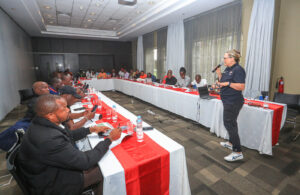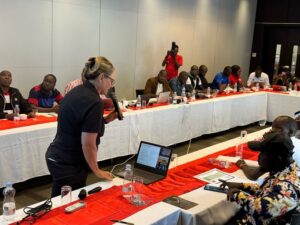Silent Echoes: Faith Leaders Call For Action To End Fatal Gender-Based Abuses
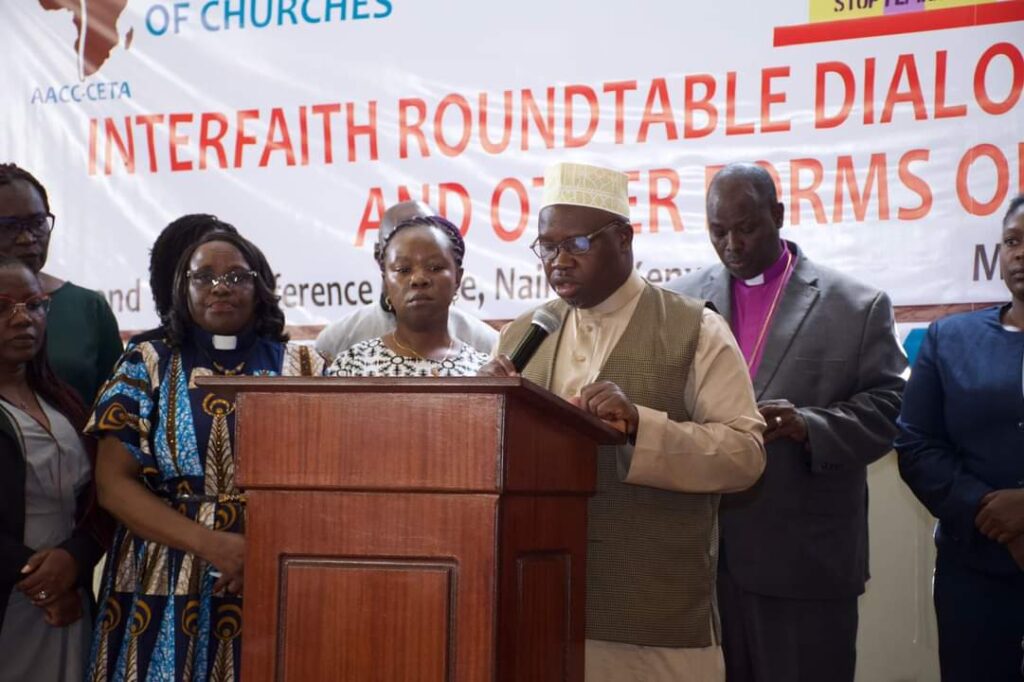
Faith leaders in Nairobi during the call for action to end fatal gender-based abuses. PHOTO/ COURTESY
NAIROBI, Kenya- Barely four days into the New Year 2024, news of the killing of 26-year-old Starlet Wahu struck Nairobi, sending shockwaves to her family, friends, and many whose sister, aunt or daughter she could have been.
The darling of many on Instagram, where she had created captivating content, was fatally stabbed in a short-term rental apartment.
Only 10 days later, Rita Waeni, 20, was brutally murdered and her body mutilated in a similar residence in Nairobi. The murderers scattered her remains, some stuffed in plastic bags, in what was thought to be a ritualistic act. Days later, Kenyans demonstrated in the streets of Nairobi to condemn what was now a clear trend of daring acts of femicide.
Yet these were only the tip of the iceberg. Femicide Count Kenya reported 58 deaths labeled as femicides between January and October 2022. In 2023, the organisation recorded 152 such killings – the highest in the past five years. At least 14 cases were reported in January 2024. The Femicide Count Kenya statistics are only those reported in the media, a sign that these could be conservative figures.
As a result, faith-based organisations added their voices to the call for sobriety and respect for human life. The press statement was read at the All-Africa Conference of Churches premises in Nairobi, by representatives of several faith organisations, among them Archbishop Jackson ole Sapit (Anglican Church of Kenya), the Reverend Dawn Gikandi, Sheikh Abu Hamza, the Reverend Dr Lydia Mwaniki (Director of Gender and Women AACC), Janet Ngombalu (Country Director Christian Aid), the Reverend Dr Lesmore Gibson Ezekiel (Director of Programmes AACC), Archbishop Makarios of the Greek Orthodox Church in Nairobi among others.
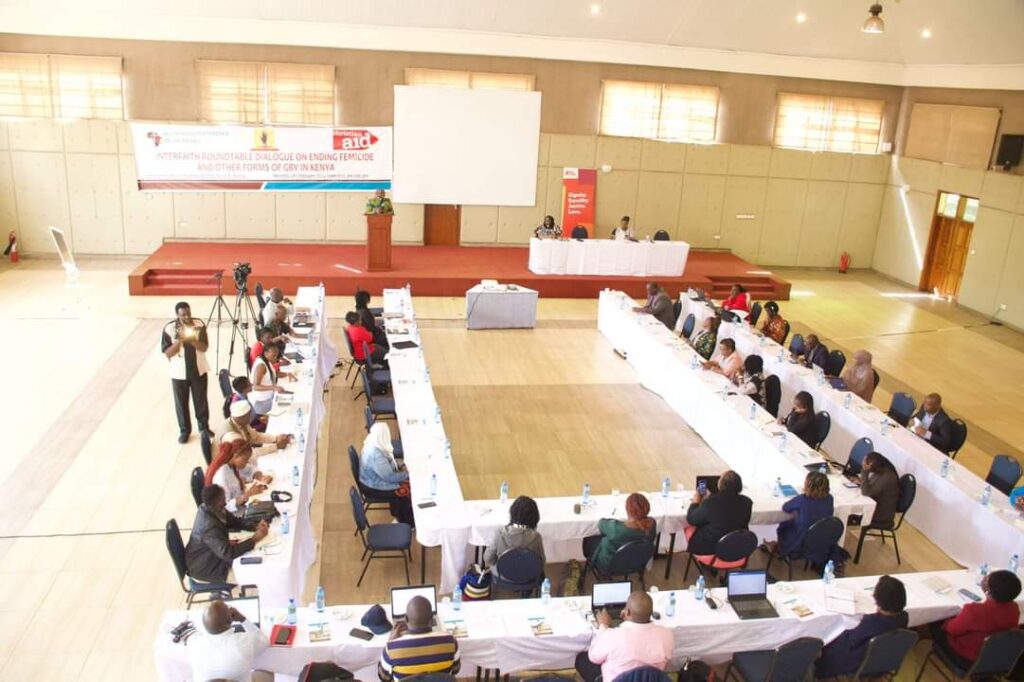
Faith leaders in Nairobi during the call for action to end fatal gender-based abuses. PHOTO/ COURTESY
Dr Lesmore emphasized the importance of breaking the silence in the face of such attacks. “Strong men love and show mercy. Weak men are the monsters. If you think you can violate a woman and showcase strength, you are a weak man. If a woman chooses to dress as she wishes, it triggers the monster within you,” he said.
He equally quoted Isaiah 1:18, and called on people to reason together and speak out boldly against injustices, and instead encourage equality for all humanity. “Matters of gender-based violence are matters of life and death,” he said.
Janet Ngumbalu, the Christian Aid-Kenya Country Director, shared a heart-wrenching story of her cousin’s killing. “I learned about it on social media, reading dishonoring comments. My cousin, a successful lawyer, was attacked for loving a man. As a family, we can’t forget because it’s on social media. We want to work with legislators to curb this vice, addressing gender-based violence and questioning when killing women became normalised,” she said.
Ngumbalu drew attention to the plight of the boychild as well, emphasising the need for support and mentorship. She said: “Gender-based violence is not only an insult but an attack on all of us.”
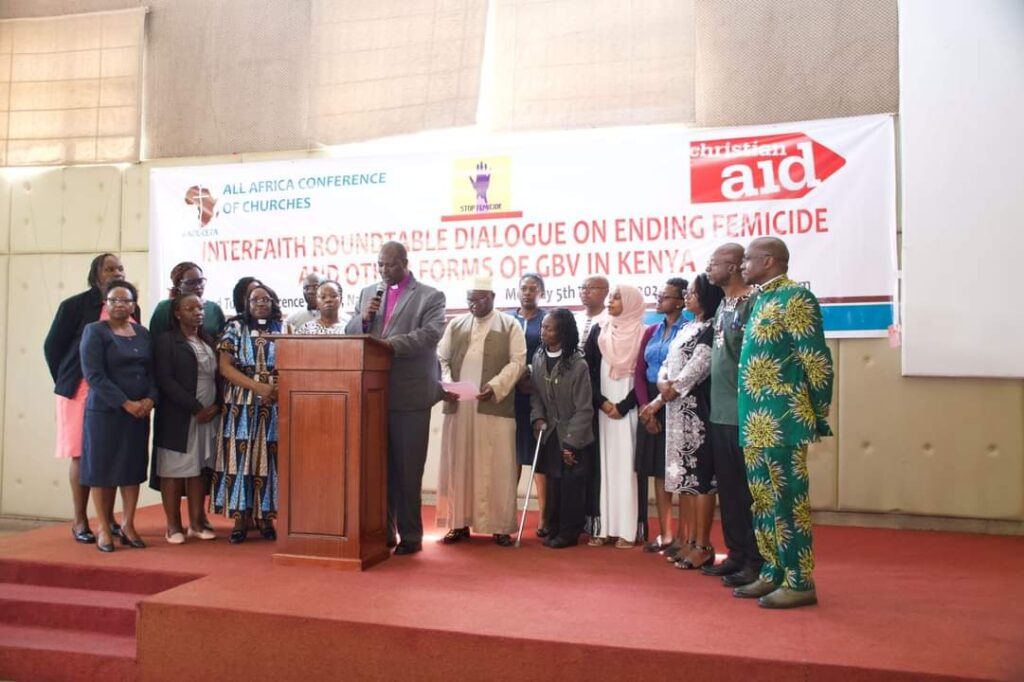
Faith leaders in Nairobi during the call for action to end fatal gender-based abuses. PHOTO/ COURTESY
Evelyn Apondi, a Senior Project Lawyer at CREAW, said: “Children suffer most when they lose their parents to femicide. Everyone has a right to life. Sensitise those who come to churches and mosques.” Ms Apondi said when religious leaders are unable to go to court, they should refer victims to CREAW for assistance in obtaining justice.
Archbishop Ole Sapit insisted on continued raising of awareness against cultural vices, emphasising the degradation of morals in society’s expectations of women.
Sheikh Abi Hamza said in his speech that societal upbringing often turns individuals into perpetrators. “The masculinity that shapes men carries into relationships and marriage; older women suffer in silence,” said Sheikh Hamza.
He added: “Faith leaders can influence policymakers and should take advantage of international days to raise awareness, as even perpetrators attend religious services.”
Rev Dawn Gikanda said there was need to collaborate with media and use social media to speak against such vices. She stressed the importance of inclusive messaging through translations and interpretations for persons with disabilities.
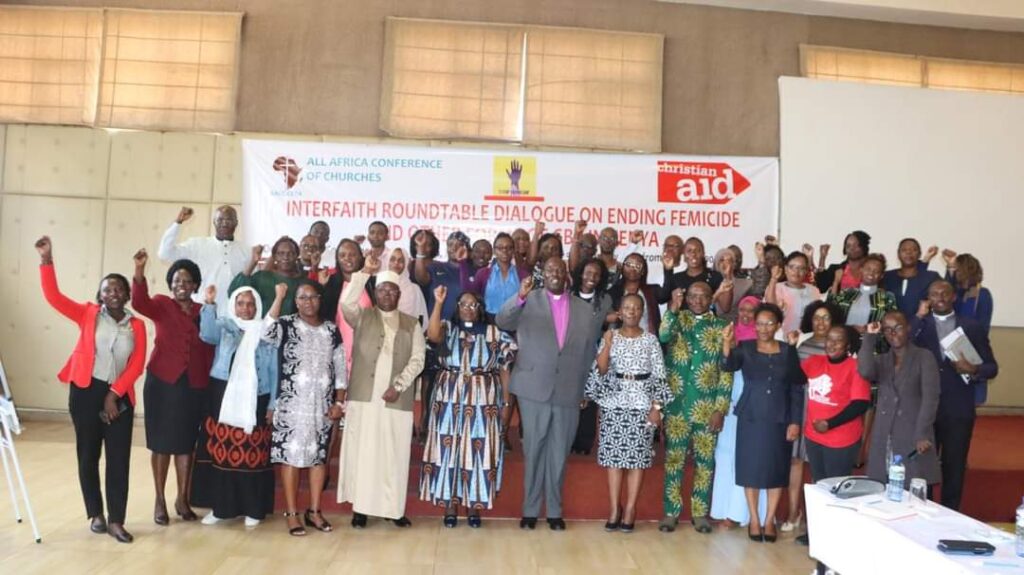
Faith leaders in Nairobi during the call for action to end fatal gender-based abuses. PHOTO/ COURTESY
In a joint statement of the Interfaith Roundtable Dialogue on Ending Femicide and other Forms of GBV in Kenya, the faith leaders urged the government to enforce ratified treaties, including The Protocol to the African Charter on Human and Peoples’ Rights on the Rights of Women in Africa (Maputo Protocol) and the Convention on the Elimination of all Forms of Discrimination against Women (CEDAW).
The faith leaders also urged all citizens, irrespective of religious affiliation, to join hands in the fight against femicide. “It is our collective responsibility to create a society where women can live free from fear, violence, and discrimination. Together, let us strive for a Kenya where every life is valued, and every woman can realise her full potential without the threat of harm,” the joint statement read in part.
